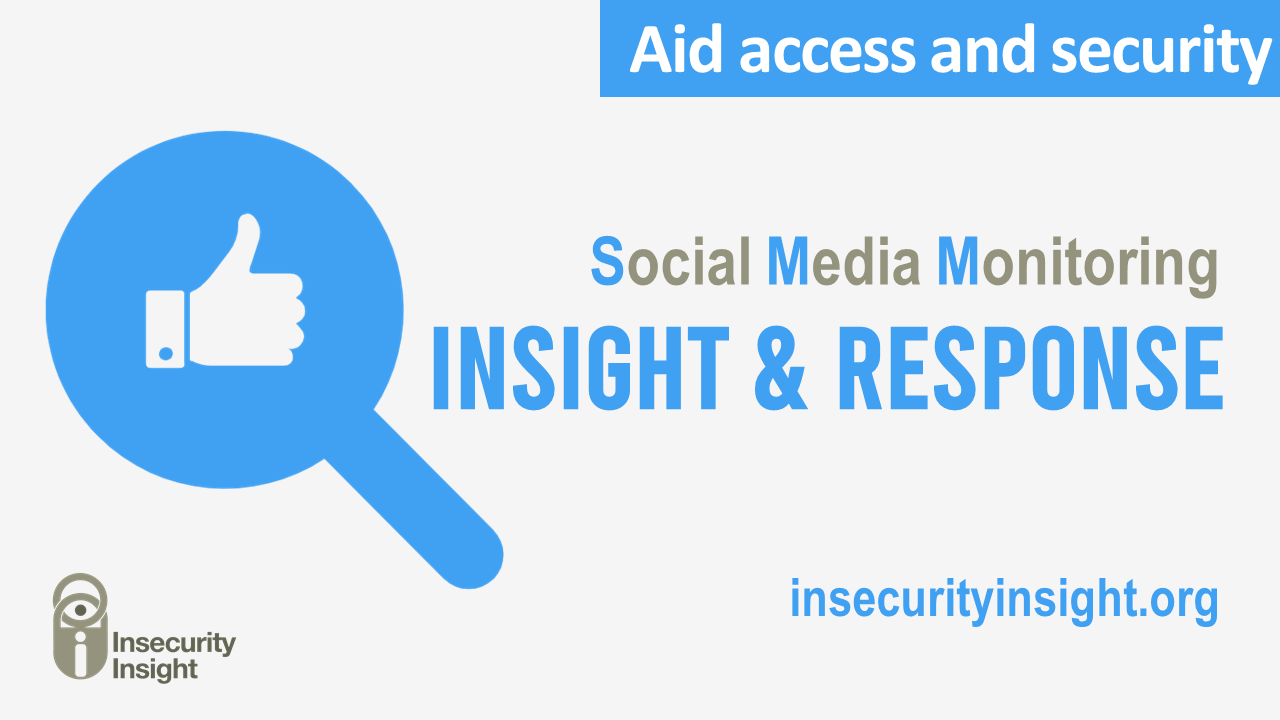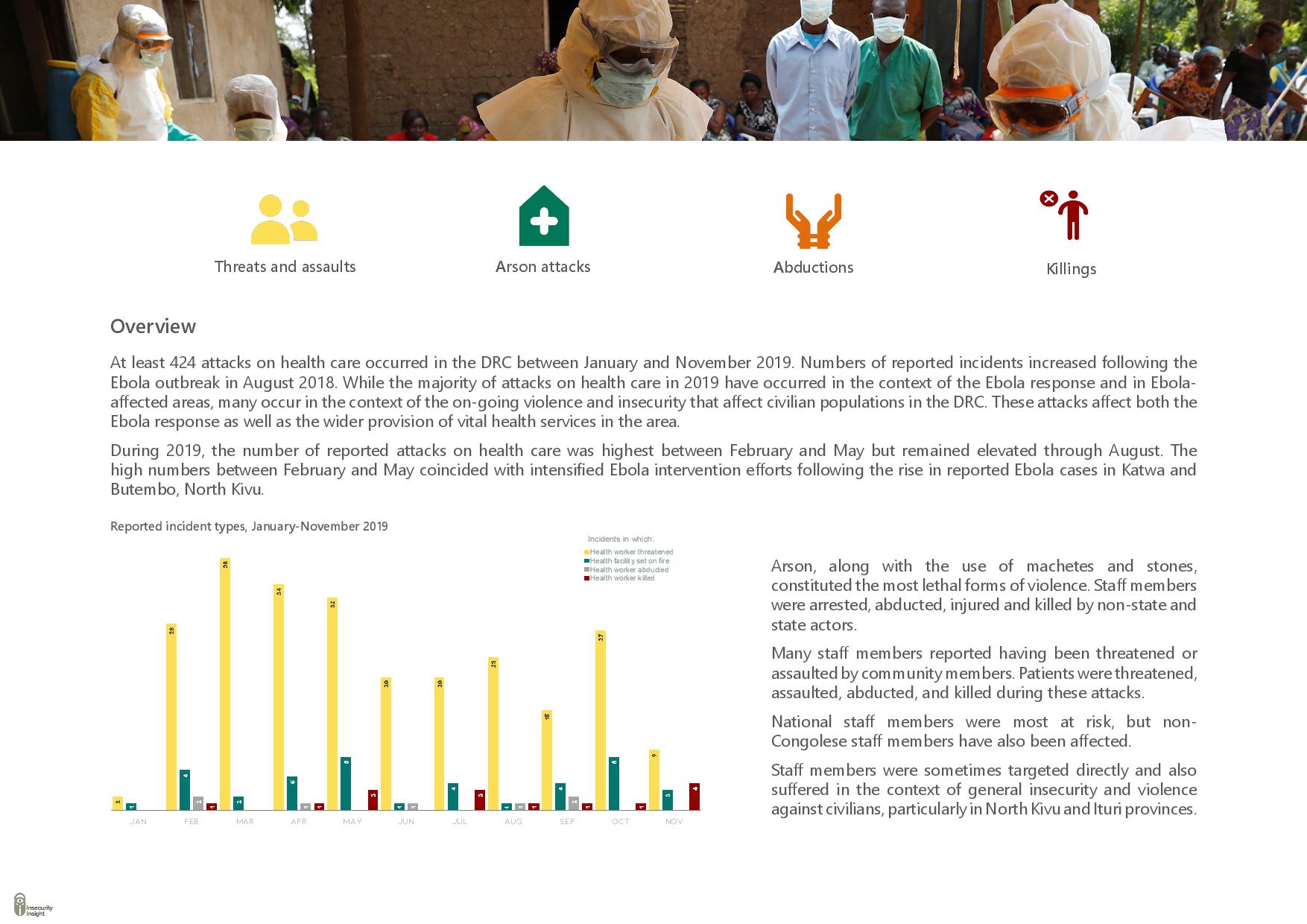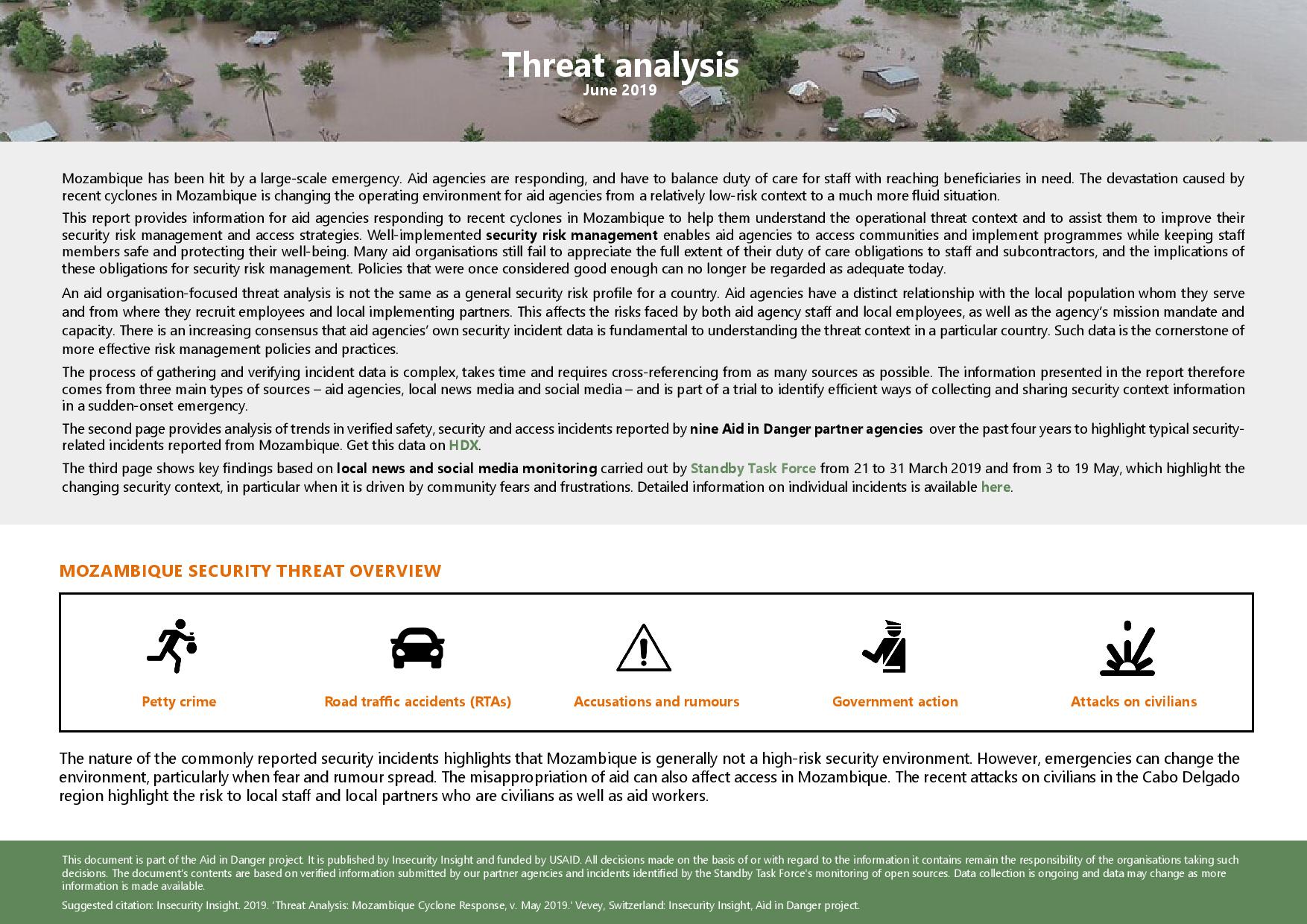For Insecurity Insight, social media is both a challenge and a tool in risk management: on the one hand, social media allows for disinformation and other forms of harm to spread faster and wider, but on the other hand it allows aid workers to have a better understanding of the environment in which they operate.
Insecurity Insight looks at social media from an aid security perspective. We examine social media data to identify when social media platforms are used to incite violence against aid providers (see here for an example of social media users inciting violence online) or to spread false information that can be used to incite violence (see here for an example of deliberate spreading of disinformation about aid workers in a conflict area).
During the COVID-19 pandemic and the Ebola outbreak, health providers have been particularly affected by disinformation spreading through social media channels. In some conflicts, such as Sudan or Syria, aid efforts are often politicised on social media.
Relying on proprietary technology powered by an AI tool to collect social media data, Insecurity Insight also conducts sentiment analysis on subjects related to aid, including aid organisations or programmes. Sentiment analysis tends to consist of a quantitative snapshot of opinions or beliefs held by civilians or beneficiaries located in the relevant humanitarian or conflict zones. This allows aid organisations to better assess the possible magnitude of positive or negative sentiment towards their programmes or teams operating in the area. In a report published in September 2023, Insecurity Insight found that most Syrian social media users were against the opening of border crossings for aid to pass through, mainly because of beliefs widely held by users that the aid passing through the border crossings mostly benefits officials close to the government.
Understanding the changing security context is important for duty of care for staff and access to beneficiaries.



Sentiments towards the SARC
April 2024
Social Media Monitoring
Assessing Social Media Perceptions of the SADC Military Deployment in the DRC
March 2024
Les allégations virales selon lesquelles une organisation humanitaire aurait
été informée de l’attaque djihadiste de Djibo soulignent
Viral Allegations that an Aid Organisation Had Prior Knowledge of the Djibo Jihadist
February 2024
Social Media Monitoring
Online Negative Sentiment Towards International Community in the DRC
February 2024
Social Media Monitoring
Libya’s Reconstruction Efforts
January 2024
Social Media Monitoring
Social Media Monitoring and Aid in the context of the Libyan Flooding Disaster
December 2023
Attitudes to Aid in Libya
November 2023
Social Media Monitoring
First Aid Efforts in Libya
November 2023
Social Media Monitoring
WFP Aid Cuts in Syria
October 2023
Social Media Monitoring